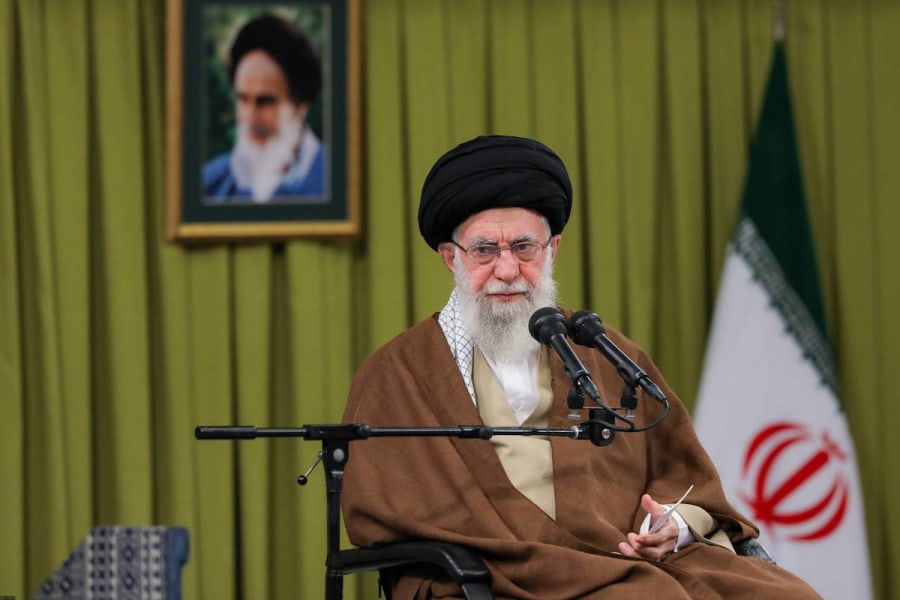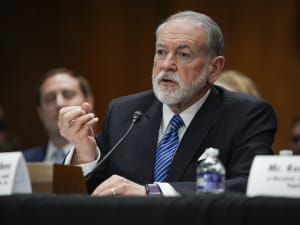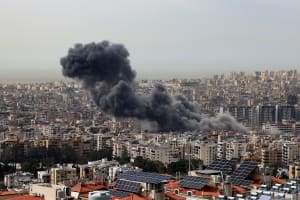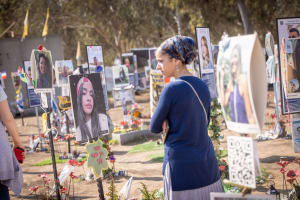Iranian supreme leader tells military to exercise ‘strategic patience,’ avoid conflict with US
Khamenei instructs army to ‘limit retaliation’ to covert attacks

Despite promising a tough response for those responsible for the Kerman bombings in Iran on Wednesday, during a ceremony to commemorate top commander Qassem Soleimani, Iran's Supreme Leader Ayatollah Ali Khamenei has instructed his military leaders to exercise “strategic patience” and to avoid “a direct military confrontation with the United States,” according to the New York Times.
According to the NYT report, Khamenei instructed the military leaders to “limit retaliation” to covert operations against Israel or limited attacks against American targets in Syria and Iraq via proxy groups.
Iran sent a warship to the Red Sea on Tuesday in a show of support for its Houthi allies. The Houthis in Yemen have carried out several attacks on ships traversing the waters off its coasts with commercial connections to Israel.
The United States and several allies formed a multinational maritime task force, Operation Prosperity Guardian, to protect the busy shipping zone.
The U.S. has been hesitant to take any action that would escalate the tense situation in the Middle East due Israel's war against Hamas in the Gaza Strip. However, on Sunday, the U.S. sank three Houthi small attack boats that participated in a raid on the Maersk Hangzhou vessel in the Red Sea.
Despite the confrontation, Washington is concerned about escalating the situation.
“We remain incredibly concerned, as we have been from the outset of this conflict, about the risk of the conflict spreading into other fronts,” U.S. State Department Spokesman Matthew Miller said on Wednesday.
The recent bombing in Iran appears to raise the risk of escalation.
On Wednesday, following the double-attack in Kerman during memorial ceremonies for Qassem Soleimani, Iranian leaders promised a harsh response against the perpetrators.
Ayatollah Khamenei referred to the perpetrators of the bombings as “rogue and murderous enemies of the Iranian people,” without naming any particular group or country.
“This heinous act will provoke a firm response,” Khamenei stated.
Iranian President Ebrahim Raisi said the perpetrators of the attack would be identified and brought to account. However, in a televised speech, he appeared to directly blame Israel.
“I warn the Zionist regime: Do not doubt that you will pay a heavy price for this crime and the crimes you have committed,” Raisi said.
Iranian media made no attempt at providing a balanced investigation about the blast. A headline in Tehran Times directly accused Israel.
“Losing in Gaza, massacring civilians in Kerman,” read the headline.
Despite Iranian leaders and state media blaming Israel, Iranian researcher Sadegh Zibakalam said that evidence indicates that the bombings were carried out by ISIS.
“Although some Iranian officials are trying to confirm that Israel is behind the incident, the nature of the operation and the explosion was such that civilians were killed, which is incompatible with Israeli operations that accurately hit their targets,” Zibakalam told Kurdish news site Rudaw.
Zibakalam’s assessment appears to echo several U.S. officials who said the Islamic State is most likely behind the attacks, citing similar attacks in the past.

The All Israel News Staff is a team of journalists in Israel.













